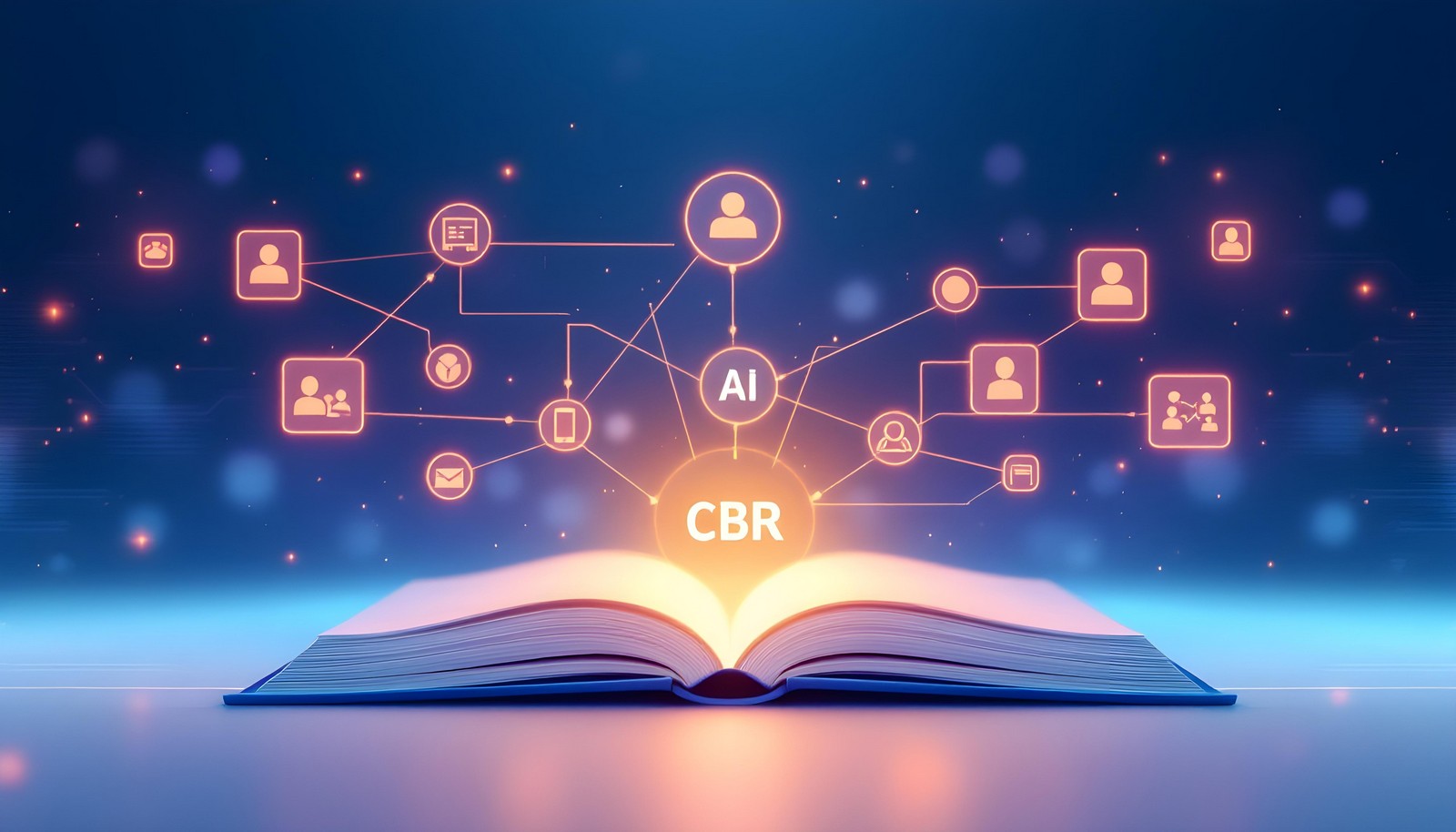Case-based Reasoning

Quick Navigation:
- Case-based Reasoning Definition
- Case-based Reasoning Explained Easy
- Case-based Reasoning Origin
- Case-based Reasoning Etymology
- Case-based Reasoning Usage Trends
- Case-based Reasoning Usage
- Case-based Reasoning Examples in Context
- Case-based Reasoning FAQ
- Case-based Reasoning Related Words
Case-based Reasoning Definition
Case-based reasoning (CBR) is a problem-solving methodology in artificial intelligence that solves new problems by adapting solutions from similar past cases. It works by storing cases in a database, retrieving similar cases when a new problem arises, and reusing or modifying those solutions to solve the current issue. CBR is commonly used in applications such as customer support, medical diagnosis, and legal reasoning, where historical cases can inform current decision-making.
Case-based Reasoning Explained Easy
Imagine you lost your keys and can’t get into your house. You remember a time when you faced the same problem, and you found them in your bag. So, you check your bag again and find them! Case-based reasoning is like this – it’s when computers use past examples to solve new problems, just like you used your memory of a similar situation.
Case-based Reasoning Origin
Case-based reasoning emerged from artificial intelligence research in the 1970s and 1980s as researchers explored methods for computers to solve problems by learning from experience. Its roots lie in cognitive psychology, where human problem-solving often relies on recalling similar past experiences.
Case-based Reasoning Etymology
The term "case-based reasoning" stems from the idea of "cases" as specific instances of experience that guide the reasoning process in problem-solving.
Case-based Reasoning Usage Trends
Case-based reasoning has been increasingly adopted in fields where learning from historical data improves outcomes, such as in healthcare for diagnosis assistance and customer service for handling queries. As the demand for systems that can leverage past data grows, CBR remains an active area in AI research and application.
Case-based Reasoning Usage
- Formal/Technical Tagging:
- Artificial Intelligence
- Cognitive Computing
- Problem Solving - Typical Collocations:
- "case-based reasoning system"
- "adaptation of past cases"
- "retrieval of cases in CBR"
- "CBR approach in AI"
Case-based Reasoning Examples in Context
- A case-based reasoning system in customer support retrieves similar past complaints to suggest solutions.
- In medicine, CBR can assist doctors by referencing previous cases with similar symptoms to guide diagnoses.
- Legal case-based systems help lawyers find relevant past cases to support their arguments.
Case-based Reasoning FAQ
- What is case-based reasoning?
It’s an AI method that solves new problems by adapting solutions from similar past cases. - How is case-based reasoning used in medicine?
Doctors use it to consult similar past cases to inform diagnoses and treatments. - How does case-based reasoning differ from rule-based systems?
CBR relies on examples from past cases, while rule-based systems follow predefined rules. - Can case-based reasoning be used in customer service?
Yes, it helps by retrieving solutions from similar previous customer complaints. - What is the retrieval phase in case-based reasoning?
It’s the phase where a relevant past case is found to address the new problem. - Is case-based reasoning a type of machine learning?
Yes, it’s considered a type of learning based on past cases, though different from statistical learning. - How does CBR improve over time?
By continuously adding new cases, which enriches the system's problem-solving knowledge. - What are the challenges of case-based reasoning?
Challenges include managing large case databases and adapting cases to fit new problems. - What is adaptation in CBR?
It’s modifying a retrieved case to suit the specifics of the new problem. - How can case-based reasoning benefit businesses?
It helps in handling recurring issues effectively by leveraging solutions from past cases.
Case-based Reasoning Related Words
- Categories/Topics:
- Artificial Intelligence
- Cognitive Computing
- Problem Solving
Did you know?
Case-based reasoning was notably applied in early AI for legal systems, where finding relevant past cases has long been critical in legal reasoning. Early AI researchers saw it as a natural fit for replicating human legal reasoning.
PicDictionary.com is an online dictionary in pictures. If you have questions or suggestions, please reach out to us on WhatsApp or Twitter.Authors | Arjun Vishnu | @ArjunAndVishnu

I am Vishnu. I like AI, Linux, Single Board Computers, and Cloud Computing. I create the web & video content, and I also write for popular websites.
My younger brother, Arjun handles image & video editing. Together, we run a YouTube Channel that's focused on reviewing gadgets and explaining technology.



Comments powered by CComment